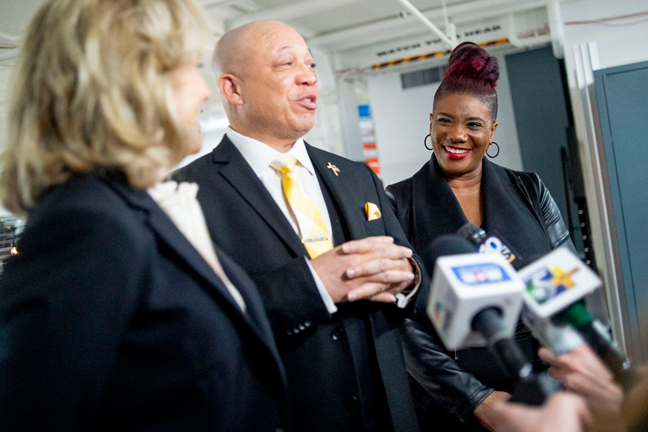By Riley Murdock | rmurdock@mlive.com
FLINT, MI — Flint Mayor Sheldon Neeley and State Rep. Cynthia Neeley, D-Flint, took part in a Zoom press conference Monday to promote a new program that provides free community college tuition to eligible Michiganders.
Launched at the beginning of February, the Michigan Reconnect program is building on the success of the state’s Futures for Frontliners program, which has enrolled 15,000 essential workers with free community college tuition this semester, said Susan Corbin, acting director of the Michigan Department of Labor and Economic Opportunity.
The state is aiming to have 60% of Michiganders hold a postsecondary degree by 2030, Corbin said.
Michigan Reconnect will pay tuition and fees for an associates degree or skill certificate at a local community college for those 25 years or older who have lived in Michigan for at least a year and who hold a high school diploma but do not yet have a college degree.
There are 463,000 eligible residents in mid-Michigan and the Thumb, Corbin said, and the program has already received 45,000 applicants statewide.
“Imagine the possibility for our families and our workforce if even half of those eligible take advantage of this opportunity,” Corbin said.
A bipartisan group of legislators approved $30 million in funding for the program this fiscal year, Cynthia Neeley said.
There are 190,000 eligible residents in Genesee County alone, she added.
“A program like Reconnect is overdue,” Cynthia Neeley said. “I certainly hope all eligible Michiganders will explore this historic opportunity.”
Sheldon Neeley said he believes the program is a huge win for the state, opening the door to higher education for those who couldn’t otherwise afford it and helping to fill more than 500,000 job openings across the state requiring higher education.

